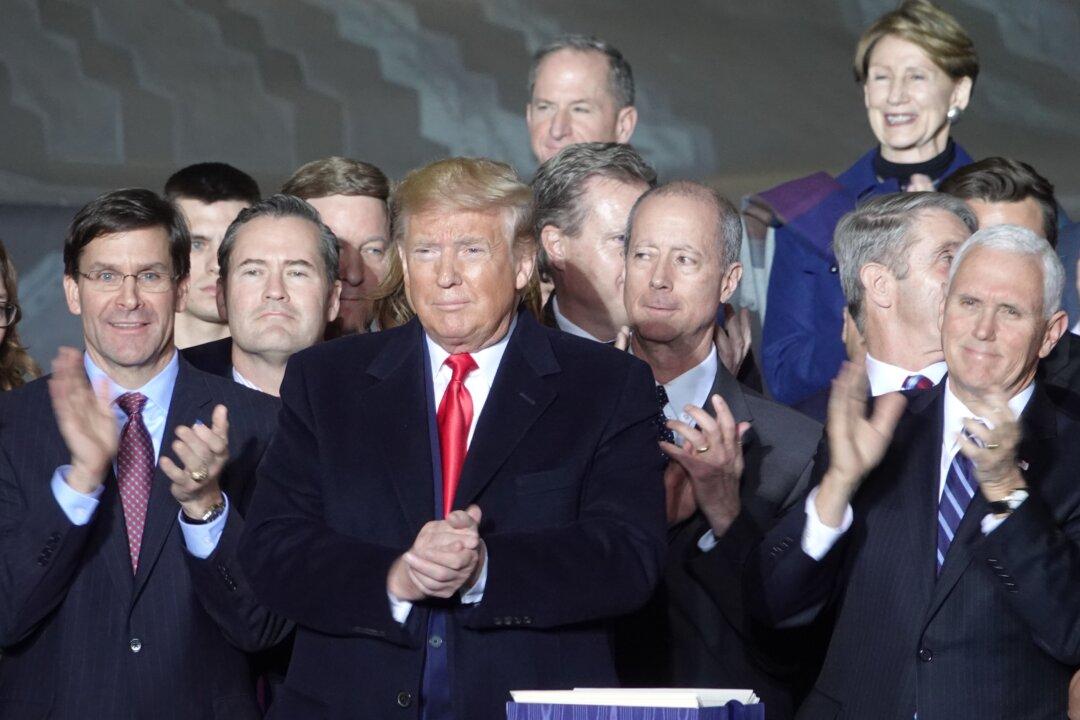JOINT BASE ANDREWS, Md.—President Donald Trump signed a $738 billion defense bill on Dec. 20, calling it “the largest-ever investment” in the U.S. military.
The bill authorizes the creation of a Space Force and the first-ever paid family leave for federal employees. It also addresses a wide range of potential threats from China.





